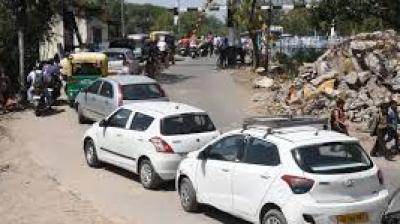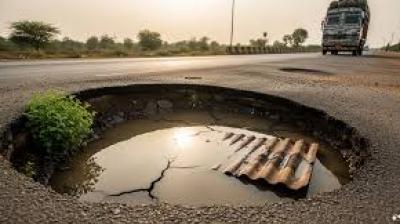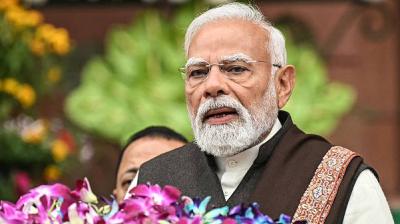
Experts believe that at this time, not one but three new variants of ‘Covid-19’ are spreading globally.
Editorial: The Third Wave of Covid-19 Is Concerning
Covid has now reached Chandigarh and is spreading in Punjab as well. On Tuesday, a 40-year-old man admitted to the Government Medical College and Hospital, Sector 32, Chandigarh, was found infected with the JN.1 variant of Covid. On Wednesday, he passed away. The man was a resident of Firozabad (Uttar Pradesh) and had pre-existing respiratory issues. On the same day, in Firozpur, a 25-year-old man also tested positive for Covid and is said to be infected with the same JN.1 variant. In Haryana, the number of infected patients has reached 7. According to health officials, the current form of the 'Covid-19' virus is not considered deadly.
However, for patients suffering from diabetes, asthma, or other respiratory diseases, this virus can prove to be fatal if proper precautions are not taken. According to warnings issued by the World Health Organization (WHO), the ‘Covid-19’ virus is not going away anytime soon. Viruses tend to prolong their life, and even if a treatment for one variant is found, they continue to mutate and take on new forms. However, in doing so, their fatality tends to decrease. They no longer remain deadly. Despite the new variants of ‘Covid-19’ spreading across most of Asia and more than half of Europe, global bodies like the World Health Organization and national governments are not showing much concern or issuing high-level alerts — the main reason being that the JN.1 variant is not considered highly lethal.
According to data released by the National Health Authority monitoring pandemics, by 8 PM on Tuesday, there were 1,010 positive Covid-19 cases in India! Of these, 104 were from Delhi alone. Currently, the state with the highest number of active cases is Kerala (430), followed by Maharashtra (210 cases). In fact, the first case of this new Covid-19 variant was found in Kerala about 15 days ago. That individual had traveled to Saudi Arabia for Hajj. After this case came to light, the number of patients in Kerala steadily increased. One death has also been reported. Despite this, health experts have advised people not to panic, although they have not recommended starting a vaccination drive.
Experts believe that at this time, not one but three new variants of ‘Covid-19’ are spreading globally. However, none of these three are considered very dangerous. Therefore, people do not need to stay confined indoors or remain unnecessarily fearful. These variants can be controlled through basic precautions such as wearing masks in crowded places, washing hands frequently with soap, and maintaining a slight distance from infected individuals.
The World Health Organization has also announced that the vaccines developed during the original ‘Covid-19’ wave are still as effective in the current scenario as they were in 2019–20. However, such announcements do not mean that we should let our guard down. In fact, both central and state governments should remain prepared for any potential future emergency—this includes arrangements for dedicated hospital wards, as well as stocking oxygen cylinders and necessary medicines. The situation of 2021 must be avoided at all costs, when the shortage of oxygen cylinders and hospital beds proved fatal for hundreds of patients.
Respiratory diseases in their various forms have always been a threat to human lives globally. In fact, diseases like pulmonary tuberculosis or asthma-related complications have caused more deaths than Covid-19. The difference lies in the fact that many of these illnesses are not contagious. Covid-19, however, is an infectious disease. Even though it may not be as deadly now, remaining alert to its dangers must be a core feature of our healthcare system. In 2021, the sudden attack of the Delta variant of Covid shook governments across the world, including ours, for three months. Now is the time to implement the lessons learned back then. Any negligence in this regard would be considered intolerable.














